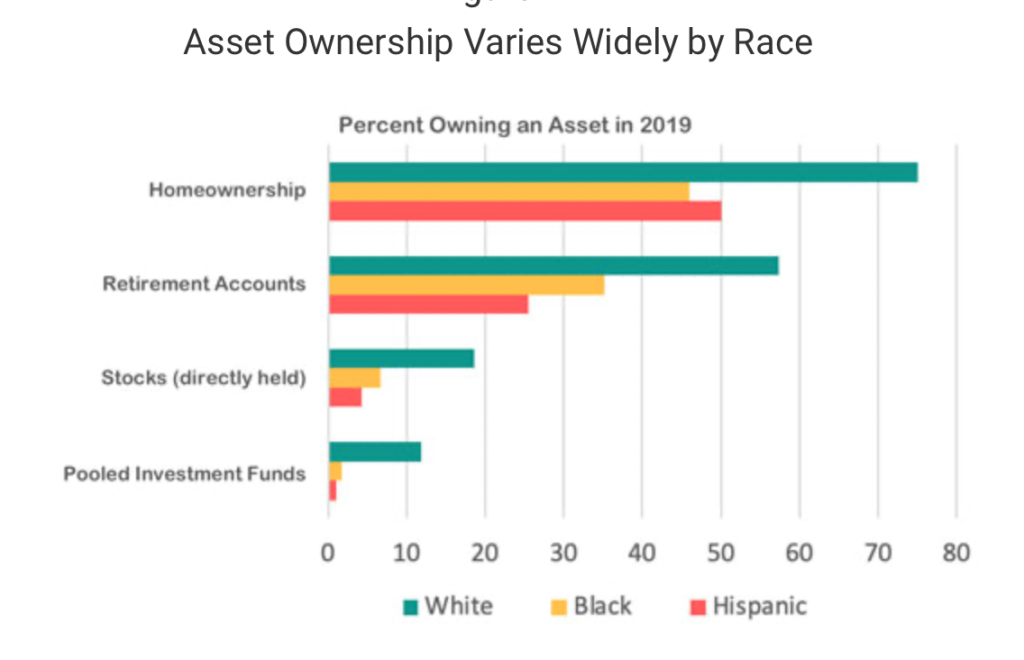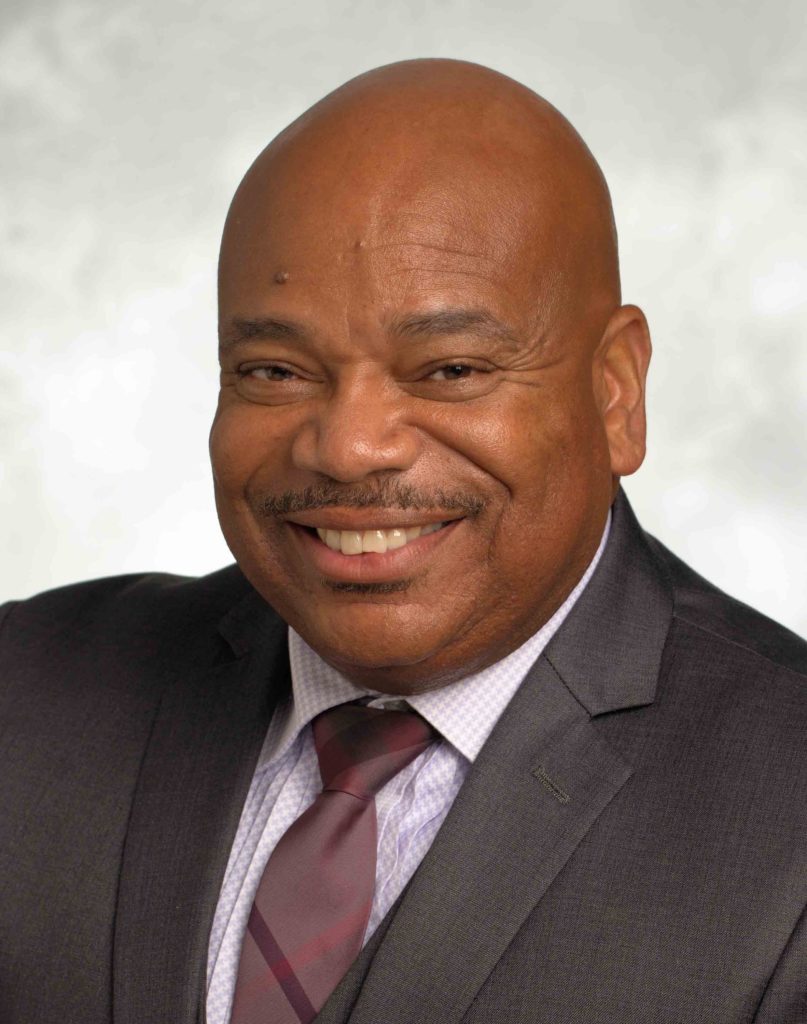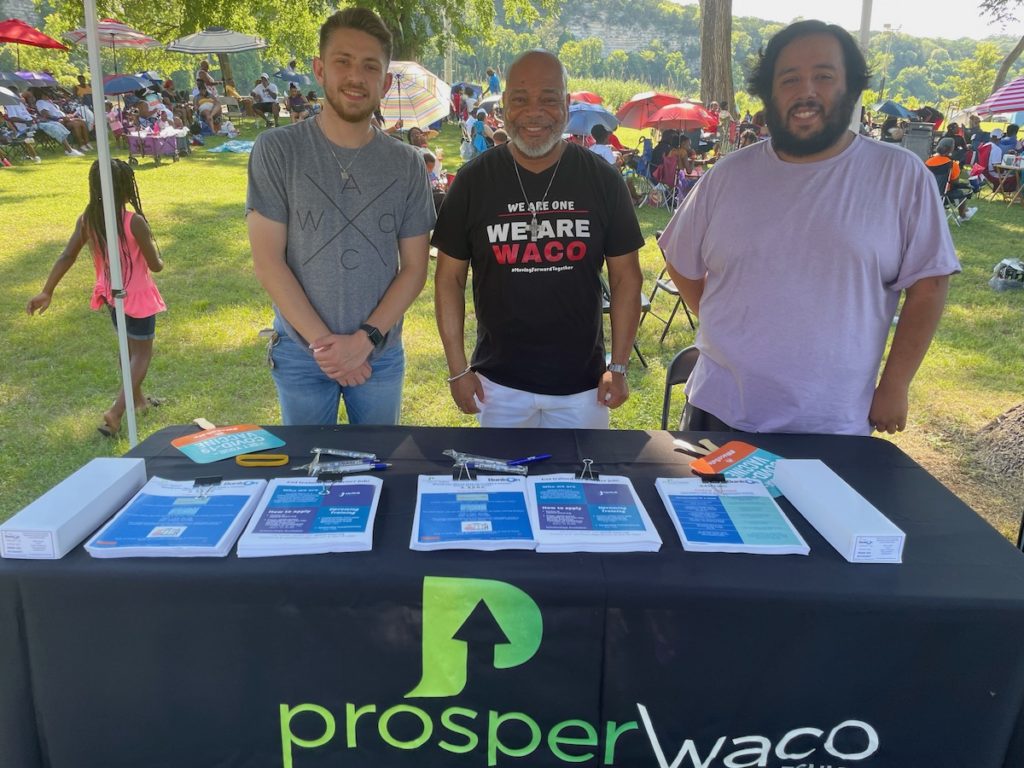By Dexter Hall
During my many readings about financial security and understanding how we arrived at this point in time, I have run across many articles and commentary.
An article by Rocio Sanchez-Moyano and Bina Shrimali, of the Federal Reserve Bank, sheds light on how years of financial exclusion of Black and Brown communities have led to many of our present-day problems and issues. The article, titled “The Racialized Roots of Financial Exclusion,” reveals the fact that access alone is not enough.

We often share information about redlining and racially restrictive housing covenants that were the law of the land in cities across America that barred “negroes” from buying in areas that were deemed “white” only.
Rocio and Bina share an example from a 1950 covenant on a property in Daly City, Calif. The covenant said: “The real property above described, or any portion thereof, shall never by occupied, used or resided on by any person not of the white or Caucasian race, except in the capacity of a servant or domestic employed thereon as such by a white Caucasian owner, tenant, or occupant” (cited from Richard Rothstein’s The Color of Law: A Forgotten History of How Our Government Segregated America, p. 78‒79).
Rothstein also cited a practice called blockbusting, which “refers to the practice of telling white homeowners that Black people are moving to induce concern about forthcoming declines in property values, which sometimes led to sales at a loss that were then sold to Black people at a profit” (Rothstein, p. 95).
The Rocio and Bina article discusses in extremely clear terms how the Black-White wealth gap came to be. More importantly, the authors help us understand why there is a need for direct investment in communities of color to balance the scale that was tipped purposely and intentionally.
Understanding the intersectionality of financial security to health and educational outcomes continues to be a bedrock of creating a more thriving community for all Wacoans. This is our challenge together in creating an inclusive economy for all.
In straightforward terms, when all people win, we all win. However, when one of our brothers and sisters loses or is left behind, we all lose.
The data we previously shared from the 1934 redlining map shows us where we should expect issues and problems today in Waco because of intentional non-investment in the past. The data today, 87 years later, show large amounts of poverty persist in East Waco and parts of South and North Waco. In other words, today’s poverty map mirrors the 1934 redlining map.
Implementing the City of Waco’s Financial Empowerment Blueprint is needed now more than ever. Let’s act today to change the future of Waco.
For more information on how to get involved in [email protected]. The time is now.
Please look at the full article by Rocio and Bina, as well as the documented research included in their endnotes.

Dexter Hall is chief of staff and senior specialist for financial security with Prosper Waco.
The Act Locally Waco blog publishes posts with a connection to these aspirations for Waco. If you are interested in writing for the Act Locally Waco Blog, please email Ferrell Foster at [email protected].
By Dexter Hall
Definition of divergent
1a: moving or extending in different directions from a common point: diverging from each other divergent paths.
Definition of convergent
1: tending to move toward one point or to approach each other: CONVERGING convergent lines
I have been on a personal journey with family and friends, as well as friends of friends, to ensure they have received their COVID-19 vaccination. I have shared with many that I am “2-Shots In” referring to the Moderna vaccination.
More importantly, I have shared how this is helping me to move past the pandemic, while still using safe protocols. I’m beginning to do the things I enjoy most — things I have been inhibited from doing during the pandemic, such as travel, gatherings, concerts, and many more.

As we all move forward, I ponder which way our community will go and what will be left behind. Are we diverging or converging post-pandemic? Which path will we take?
Financially, each path carries its own weight of issues — some with good prospects and some with not-so-good prospects.
COVID-19 forced us all to work together, to converge, if we were to survive the health and economic apocalypse that could have engulfed us. We worked together for the greater good. During this convergence, COVID-19 helped uncover mass amounts of disparity in our community regarding health, education, and financial and economic security. Some of us were not surprised at all by these disparities because this is and has been our lived experience via work, life, or in my case both.
As these long-held disparities in financial and economic security were displayed openly for all to see, there was a movement or convergence of government, community, nonprofits, business leaders, and others. They came together to develop many initiatives, in some cases first-of-their-kind programming to help the LMI (low-to-moderate income) members of our community. These safety nets ensured the bottom didn’t drop out of our economic floor, which would have been catastrophic for all, including the “haves.”
COVID-19 put us all on a converging path of economic survivability and showed how working together provides a brighter path for our most vulnerable community members and also works for ALL Wacoans.
As we resume our pre-pandemic normal, we tend to diverge, to move away from working together, back to our corners, and away from our common goal of fighting COVID-19. I wonder what will be lost that was gained during our fight. And, as in any war, what will the spoils be?
Will we forget the financial and economic disparities that were put on display as many in our minority communities lost their jobs with no economic safety net?
Will we forget the struggles of our minority small business owners who lacked access to capital prior to COVID-19 and saw greater losses during the pandemic than their counterparts?
Will we forget how they asked for and still need “Targeted Technical Assistance” that works for them and not for the provider?
Will we forget the housing needs of our marginalized community as prices of goods to build housing have soared almost three times their pre-pandemic levels and which will ultimately widen the already wide Black/White housing and wealth gap and also lead to an “affordable rental” issue in our community?
I ask, are we on a path of converging or diverging post-pandemic?
Let us stay the course and “LIVE” like the pandemic is behind us but continuing to “WORK TOGETHER” as if the pandemic was still in front of us. Let us converge, not diverge, in our viewpoints on the economic security for all Wacoans.
At Prosper Waco we are working to address the financial and economic security for our marginalized communities in Waco. We invite you to join us in this fight that ultimately impacts all Wacoans. Please contact me at [email protected] for information on how you can be involved as we are converging together through the “City of Waco Financial Empowerment Blueprint.”
One for all and all for one.

Dexter Hall is chief of staff and senior content specialist for financial security with Prosper Waco. For more information on financial security contact Hall at [email protected].
The Act Locally Waco blog publishes posts with a connection to these aspirations for Waco. If you are interested in writing for the Act Locally Waco Blog, please email Ferrell Foster at [email protected].
